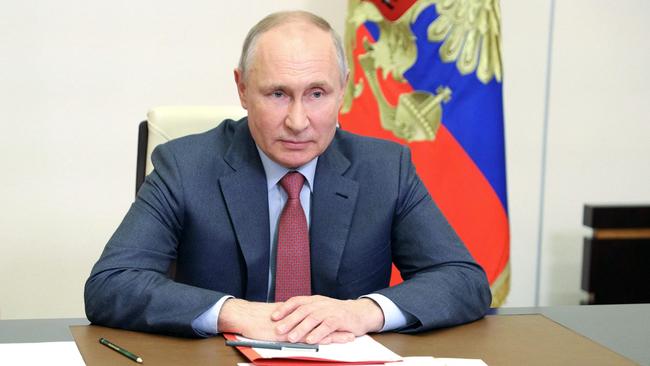
Meanwhile, Western military and humanitarian aid can continue to funnel into Ukraine, particularly via Poland. The West can keep the best part of Ukraine’s 40 million people under arms practically indefinitely – if it chooses.
The Ukrainians’ insurgency may well surpass the violence coalition forces faced in Iraq and Afghanistan, the resistance of the Vietnam War, and the bloodshed of Russia’s own invasion of Afghanistan in the 1980s. Unlike those conflicts, the insurgents of Ukraine will not be a minority of partisans or religious militants operating within an otherwise ambivalent population – they will be the population.
To simultaneously contain the war within Ukraine and bring it to a fast and favourable end, the US and its allies will need to engage in a range of covert actions – secret and deniable interventions that shape events – while trying to avoid military escalation. Reportedly, since 2015 the CIA has been embedded in Ukraine to help train local special forces and intelligence partners.
Under a Russian-occupied Ukraine, such assistance doubtless will continue, if more secretly and at greater risk. It also will have to take on a more paramilitary character. Cyber operations to disrupt Russian command and control, the sabotage of supplies, and directly arming Ukrainian militia will be needed.
However, the final Western objective cannot be solely for the liberation of Ukraine. Ultimately, Russia must not return to normalised relations without first removing Vladimir Putin from office. If he is allowed to rehabilitate his image and again stride the stages of the Asia-Pacific Economic Co-operation forum, the G20 or the UN, it will signal to would-be despots that the world can bend to their aggression.
To end Putin’s presidency, Russia will have to be the target of a heavy campaign of covert action. Undoubtedly the mischief makers of the CIA’s clandestine service and the British Secret Intelligence Service will be at work developing proposals for governments to approve. Authorising them will require an appetite for risk on the part of their leaders.
Putin is a paranoid autocrat who reportedly has become more isolated during the pandemic, travelling less and maintaining a tight circle of advisers. He has no obvious successor and is cautious of allowing any bureaucrat or oligarch to acquire too much power.
Western covert actions should set about bringing his paranoias to life and making him and those in his orbit as uncomfortable as possible.
Recent operations against terrorist groups give some indication of the disruptions that could be mustered against the Russian elite. In operations against Islamic State targets in Syria, British economic warfare cells became adept at wiping bank accounts and interdicting financial transactions. Britain’s Government Communications Headquarters also developed the ability to flood all mobile phones and devices in a given area with constant fake calls and messages. This was developed as a means to counter improvised explosive devices but proved equally effective at depriving targets of sleep.
Information operations designed to encourage protests and sow popular discontent against Putin also are urgently required. Online propaganda and pirate broadcasts will help reach the masses, but tailored narrowcast messages sent direct to influential Russians also can help communicate that it is time for Putin to go. A group of Russia’s Council of Ministers, its Security Council or its billionaire oligarchs would have enough power to choose to end Putin’s presidency. A comprehensive campaign of sanctions, covert action and diplomatic messaging can help bring them to this decision.
Australia can assist: through the Australian Signals Directorate, it has powerful capabilities to conduct offensive cyber operations that can aid the fight in Ukraine and the battle for hearts and minds in Russia.
William Stoltz works at the National Security College at the Australian National University.



A poll of Ukrainian citizens in January found 45 per cent of the population would be willing to engage in armed resistance against Russian occupiers. The percentage willing to fight will be much higher now that Russian tanks roll down their streets.